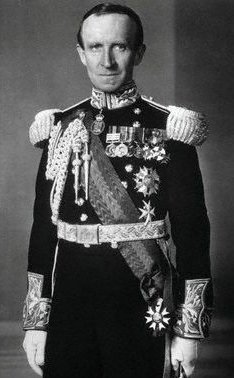Huntingtower (Dickson McCunn #1)
Book Details
| Title: | Huntingtower (Dickson McCunn #1) | ||||||||||
| Author: |
| ||||||||||
| Published: | 1922 | ||||||||||
| Publisher: | George H. Doran Company | ||||||||||
| Tags: | fiction, mystery | ||||||||||
| Description: | Huntingtower is a 1922 novel by the Scottish author John Buchan, initially serialised in Popular Magazine between August and September 1921. It is the first of his three Dickson McCunn books, the action taking place in the district of Carrick in Galloway, Scotland.
Having sold his Glasgow grocery-store business, 55-year-old Dickson McCunn decides to start his retirement with a walking holiday in the district of Carrick in Galloway. At a local inn he meets John Heritage, a poet and ex-soldier, as well as an unnamed young man who asks after a place called 'Darkwater' that nobody has heard of.
McCunn and Heritage decide to spend the next night at the village of Dalquaharter where they are taken in by a local widow, Phemie Morran. They investigate the local big house, Huntingtower, where – although the place is ostensibly empty – they hear a woman singing. Heritage recognises the voice as that of a Russian princess he had fallen in love with from afar. [Suggest a different description.] |
||||||||||
| Downloads: | 959 | ||||||||||
| Pages: | 135  |
Author Bio for Buchan, John

John Buchan, 1st Baron Tweedsmuir GCMG GCVO CH PC (26 August 1875 – 11 February 1940) was a Scottish novelist, historian and Unionist politician who served as Governor General of Canada, the 15th since Canadian Confederation.
In 1910, Buchan wrote Prester John, the first of his adventure novels set in South Africa, and the following year he suffered from duodenal ulcers, a condition that later afflicted one of his fictional characters. At the same time, Buchan ventured into the political arena, and was adopted as Unionist candidate in March 1911 for the Borders seat of Peebles and Selkirk; he supported free trade, women's suffrage, national insurance, and curtailing the powers of the House of Lords, though he did also oppose the welfare reforms of the Liberal Party, and what he considered to be the "class hatred" fostered by demagogic Liberals such as David Lloyd George.
With the outbreak of the First World War, Buchan went to write for the British War Propaganda Bureau and worked as a correspondent in France for The Times. He continued to write fiction, and in 1915 published his most famous work, The Thirty-Nine Steps, a spy-thriller set just prior to World War I. The novel featured Buchan's oft used hero, Richard Hannay, whose character was based on Edmund Ironside, a friend of Buchan from his days in South Africa. A sequel, Greenmantle, came the following year. Buchan then enlisted in the British Army and was commissioned as a second lieutenant in the Intelligence Corps, where he wrote speeches and communiqués for Sir Douglas Haig. Recognised for his abilities, Buchan was appointed as the Director of Information in 1917, under Lord Beaverbrook—which Buchan said was "the toughest job I ever took on"—and also assisted Charles Masterman in publishing a monthly magazine that detailed the history of the war, the first edition appearing in February 1915 (and later published in 24 volumes as Nelson's History of the War). It was difficult, given his close connections to many of Britain's military leaders, for Buchan to be critical of the British Army's conduct during the conflict.
Following the close of the war, Buchan turned his attention to writing on historical subjects, along with his usual thrillers and novels.--Wikipedia.
Available Formats
| FILE TYPE | LINK | ||
| UTF-8 text | 20201222.txt | ||
| HTML | 20201222.html | ||
| Epub | 20201222.epub | If you cannot open a .mobi file on your mobile device, please use .epub with an appropriate eReader. | |
| Mobi/Kindle | 20201222.mobi | ![1. Download the .mobi file into your computer’s Downloads Folder.
2. Rename the file from [8-digit number].mobi to [my title].mobi.
3. Connect your Kindle to your computer using the Kindle USB cable.
4. Open the “documents” folder in the Kindle directory and Copy/Paste
the renamed .mobi file into the “documents” folder.
5. Eject your Kindle. The file will then appear in the Kindle Main Menu
as a New item with the new renamed file name. Info](/images/info.jpg) | Not all Kindles or Kindle apps open all .mobi files. |
| PDF (tablet) | 20201222-a5.pdf | ||
| HTML Zip | 20201222-h.zip |
Kindle Direct (New, Experimental)
Send this book direct to your kindle via email. We need your Send-to-Kindle Email address, which can be found by looking in your Kindle device’s Settings page. All kindle email addresses will end in @kindle.com. Note you must add our email server’s address, [email protected], to your Amazon account’s Approved E-mail list. This list may be found on your Amazon account: Your Account→ Manage Your Content and Devices→ Preferences→ Personal Document Settings→ Approved Personal Document E-mail List→ Add a new approved e-mail address.
This book is in the public domain in Canada, and is made available to you DRM-free. You may do whatever you like with this book, but mostly we hope you will read it.
Here at FadedPage and our companion site Distributed Proofreaders Canada, we pride ourselves on producing the best ebooks you can find. Please tell us about any errors you have found in this book, or in the information on this page about this book.
